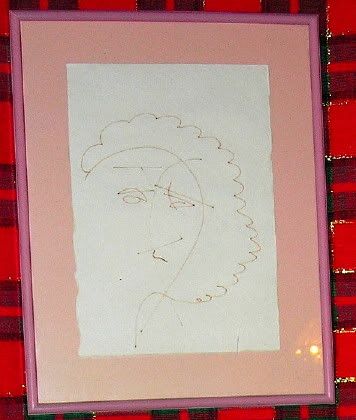Thu 17 May 2012
Troublesome characters
Posted by PJ under character, characters, review, writers, writing
No Comments
I sometimes find myself fretting about my characters and disappointing my readers. Will they be disappointed, I ask myself, in a story where the freak protagonist remains a freak at the end, not magically transformed into someone more attuned to mainstream standards of beauty and social standing? Not young and strong and thin and accepted. A glorious transformation definitely takes place for this particular character I’m thinking about, but it’s all internal—with maybe a glimmer of hope at the end.
For me, as a reader, that’s all I ask: the potential for a better tomorrow. I’m not a fan of unrelieved realism and tragedy and probably would never write that kind of a story. When I was young, I thought it the only way to achieve High Art, but I don’t think that so much anymore. And I’m not so much interested in High Art, either. Just good writing.
This protagonist I’m thinking about is being punished for her sins. Not in the narrowly defined Judeo-Christian sense—as often marketed by fundamentalists and evangelicals. I don’t consider things like who is twanging who in whatever manner to be a sin, so long as everyone is a consenting adult. Sin is a word I reserve for things like murdering, cheating, manipulating, driving companies into bankruptcy, costing thousands of jobs, and the losing/looting of pension funds and properties. Fortunately, my protagonist is not a hedge fund manager or a corporate raider, so the reader may be able to find some sympathy for her.
I have a penchant for complex and not completely sympathetic characters, though. Sometimes that works out, sometimes not. They don’t always act with shining heroism and at times are a bit unstable. Or shitheads. Readers don’t always like them. That’s my fault some of the time (all the time?), because I haven’t written them with sufficient courage. I haven’t had the nerve or the foresight to take an unattractive character (or character trait) to its logical extension. I’ve tried to hedge my bets, gambling that I can charm my way past the unlikeable bits with no diminishment of heroism. I’m afraid to let the reader actively dislike the character even for a short time. You can’t really do that, I don’t think. When someone is being a shithead, you have to let them be one. You do run the risk of alienating some readers, of them putting the story down and never going back, but if you’ve set the story up right, they may stick with you for the rest of the ride to see how things work out.
Or maybe it’s a question of doing the best writing you can, the most interesting characters, and letting them find their audience. A risky stratagem, given the vagaries of the market, but the only honest way I know of approaching this. In real life human beings are often contradictory, selfish, stupid, and yet they’re not bad people. They have the potential for redemption. Those are the people I’m interested in seeing in fiction, too. Oh yeah, a good shiny-smiled hero or heroine is fun to read sometimes, but most of the time I like yellow-toothed protagonists better.
And maybe this, too, is a question of skill. Perhaps the reader can accept their contradictions, their mean streaks, their lashing out if the skill of execution is right. I know I’ve read characters like that and not thrown the book across the room. Take, for example, Chess Putnam in Stacia Kane’s wonderful Downside Ghosts series. Chess is a complete mess, makes stupid and self-destructive decisions, is her own worst enemy—and yet I love her and love reading about her even when I’m cringing hard at what she does. I keep pulling for her to snatch her backside out of the fires she throws it into time and again. She isn’t every reader’s cup of tea, but she’s mine, and wonderfully flawed and makes for compelling reading. So, the point is not to make characters that will be acceptable to every reader, but to make the writing compelling enough that readers can still find something to hold onto. Have I learned that lesson yet? I don’t know—or I know that I haven’t pulled it off all the time. I’m still working on it.
You can’t please all readers all the time. That I know for true. Some will accept the well-written shithead, some never will. That’s a matter of taste. As for the writer writing these complex people, it’s a matter of writing and revising and revising and revising and finding the balance.
Yes, that’s the truth, and the answer to my question, I suppose.

